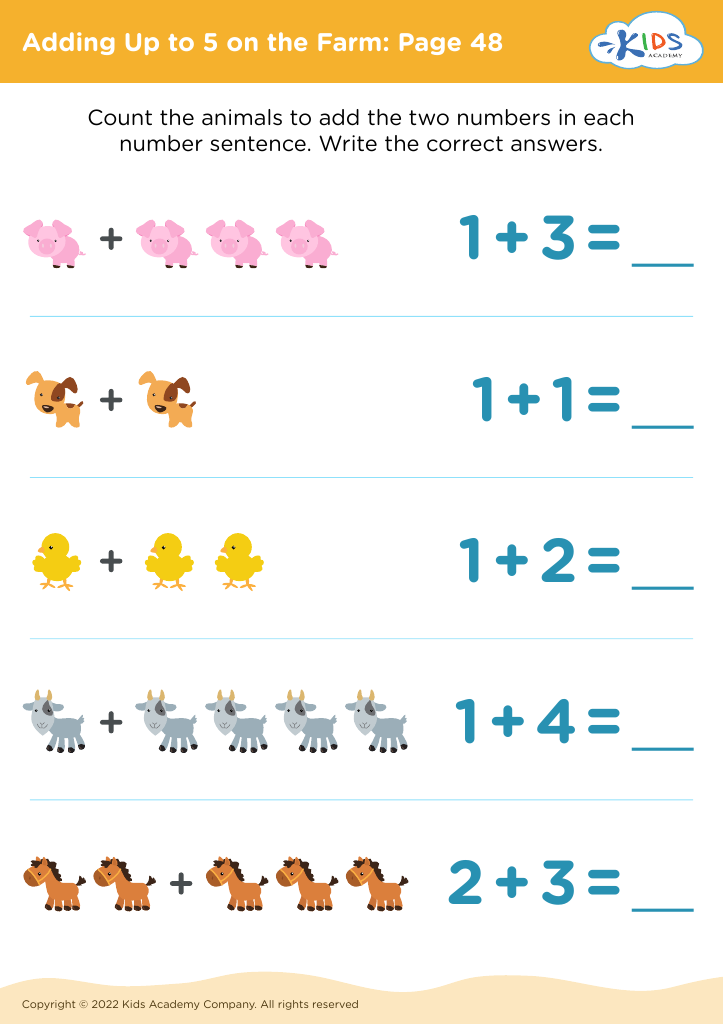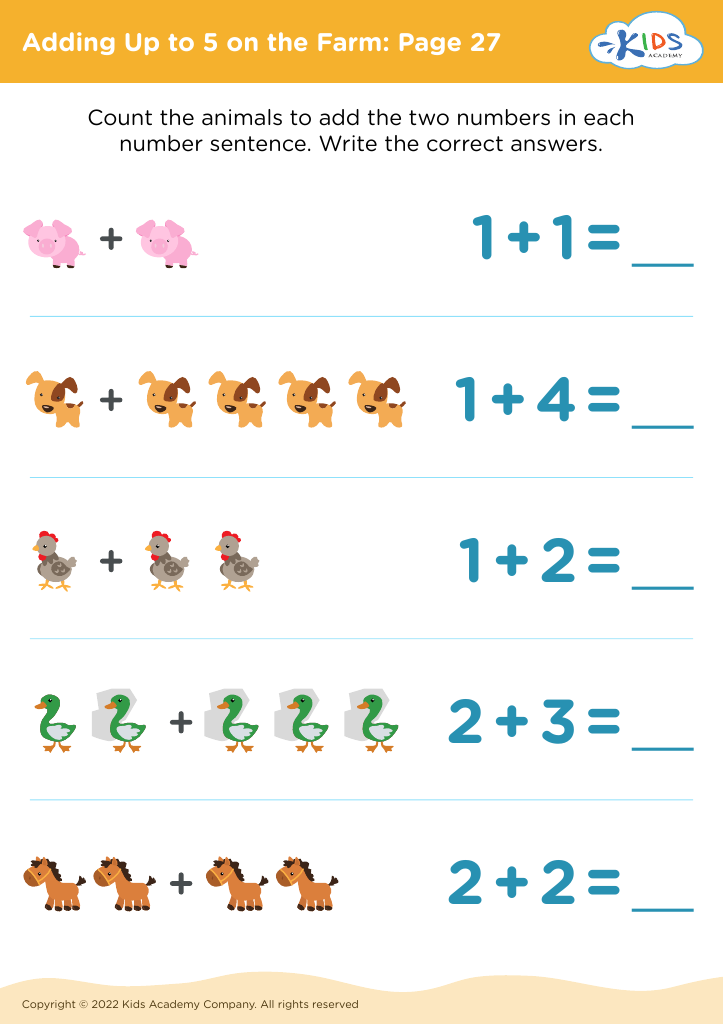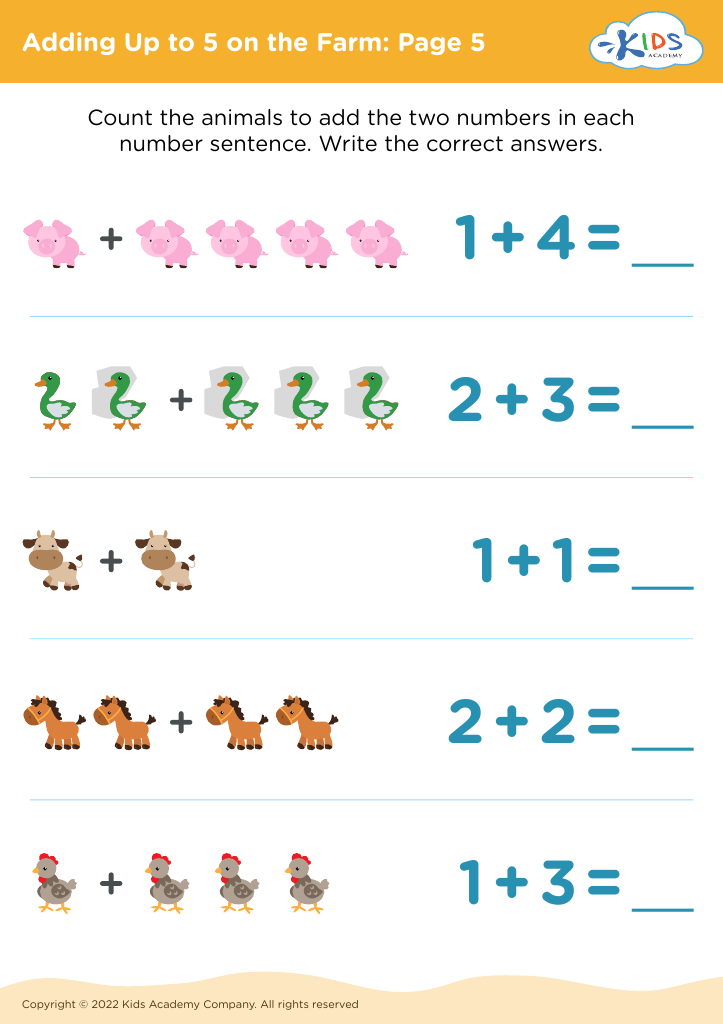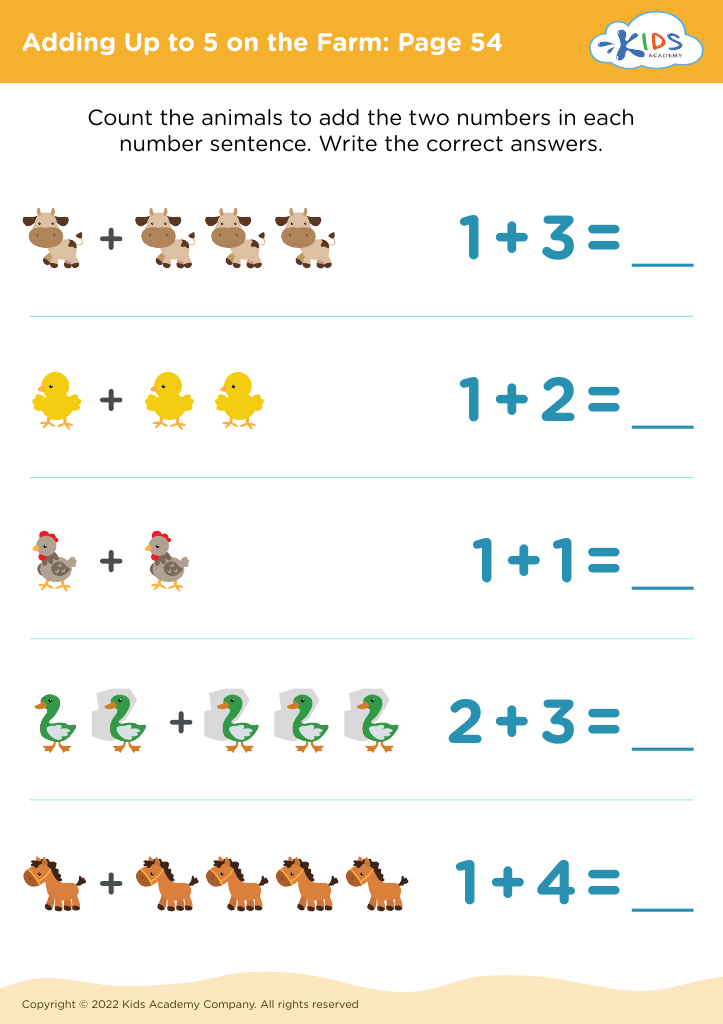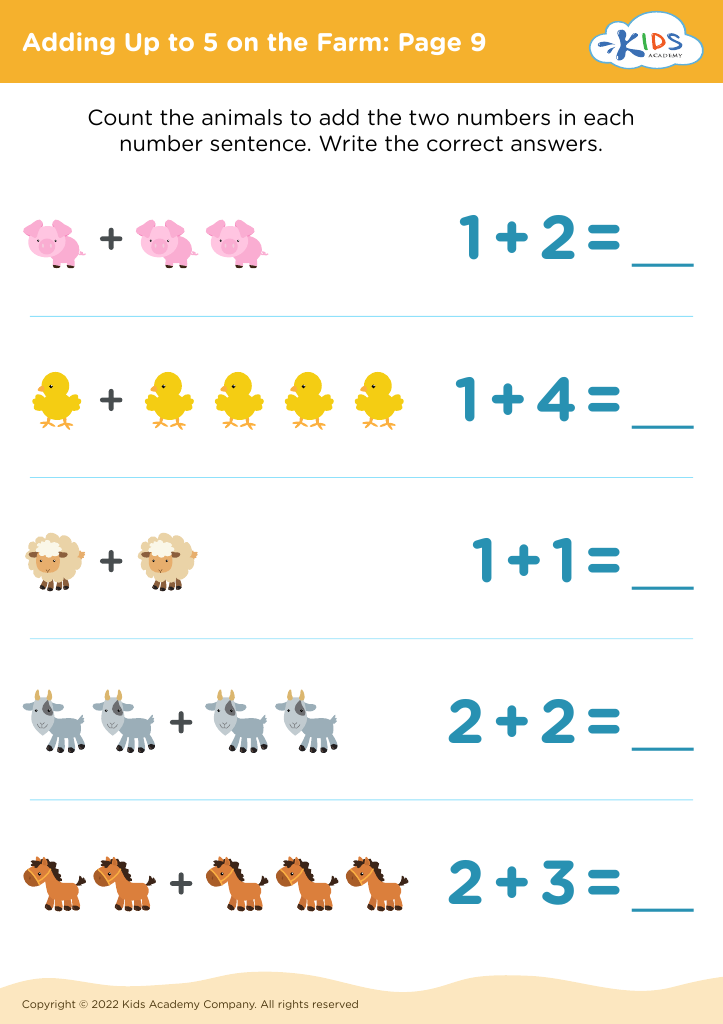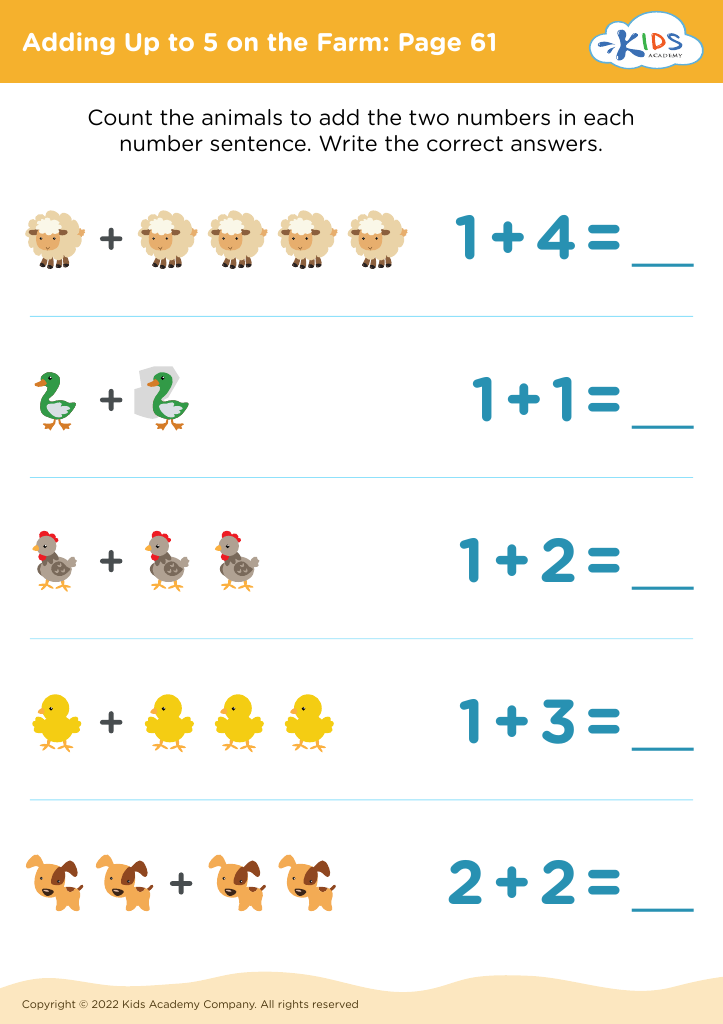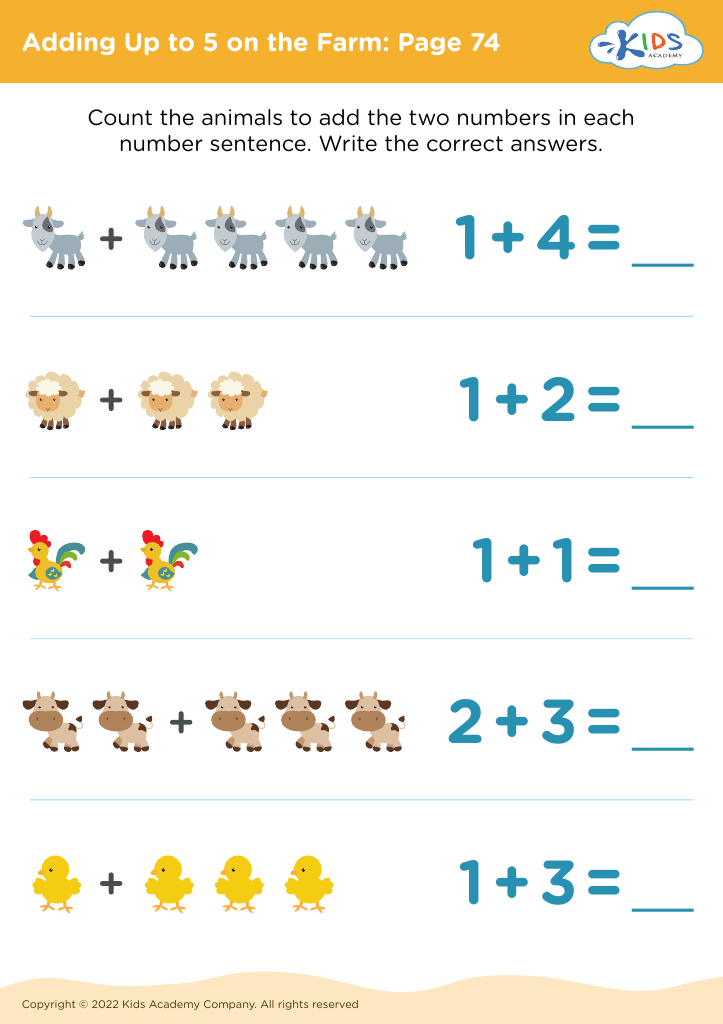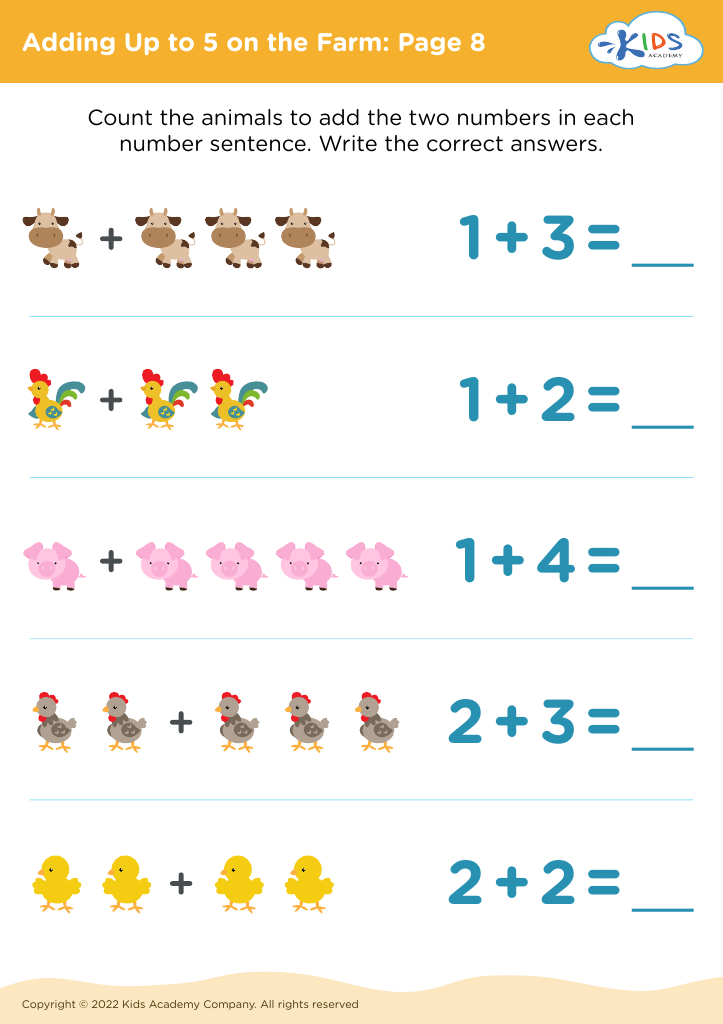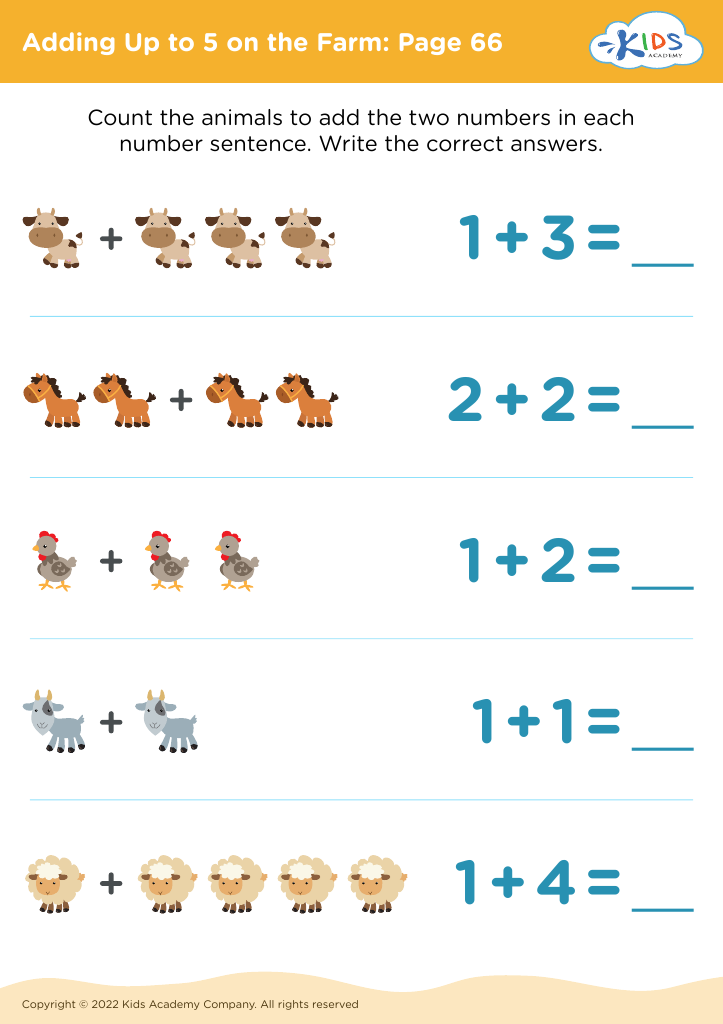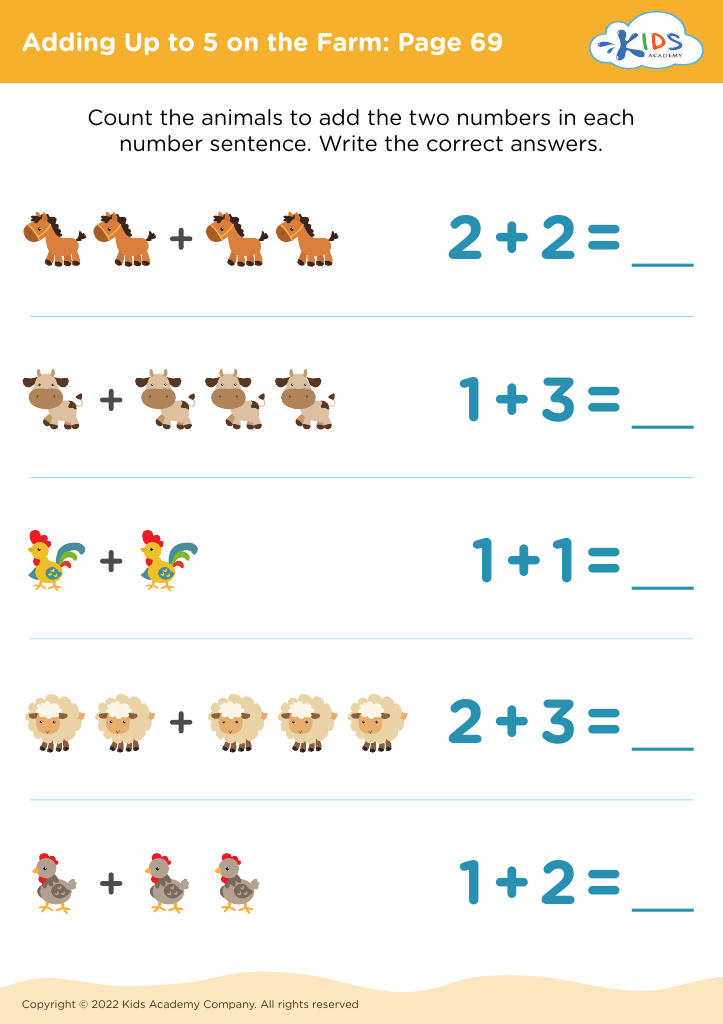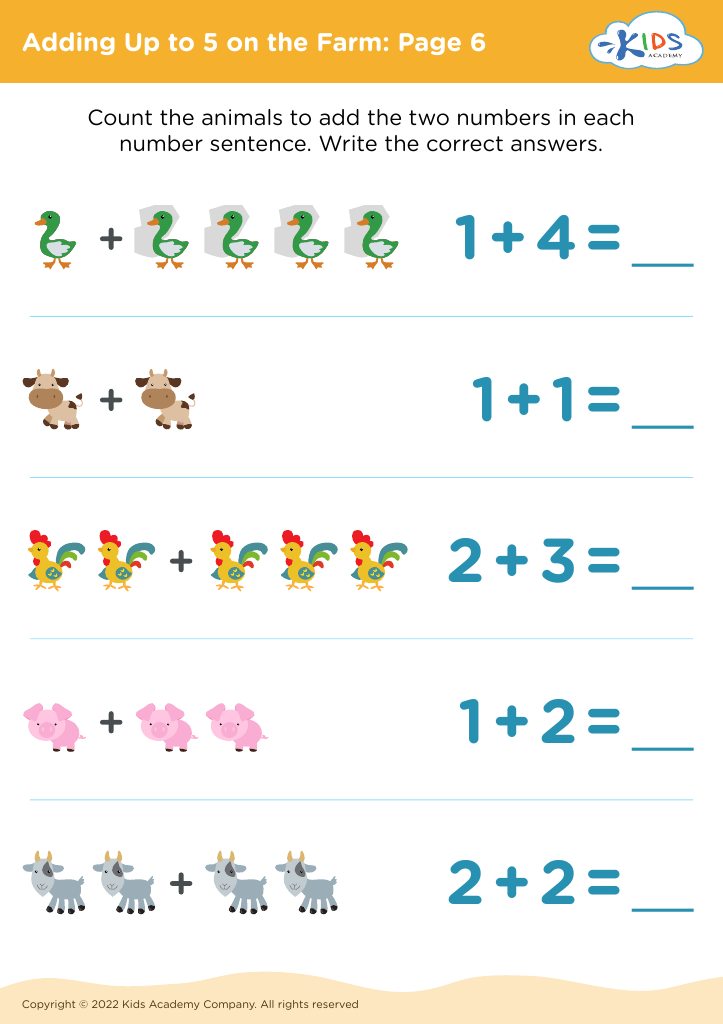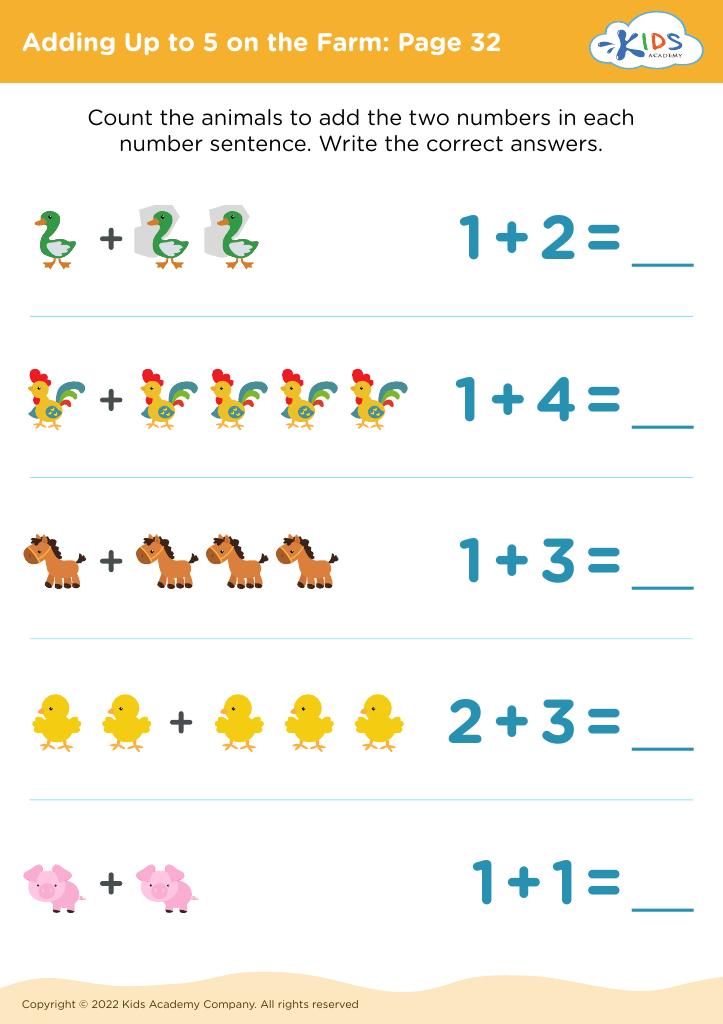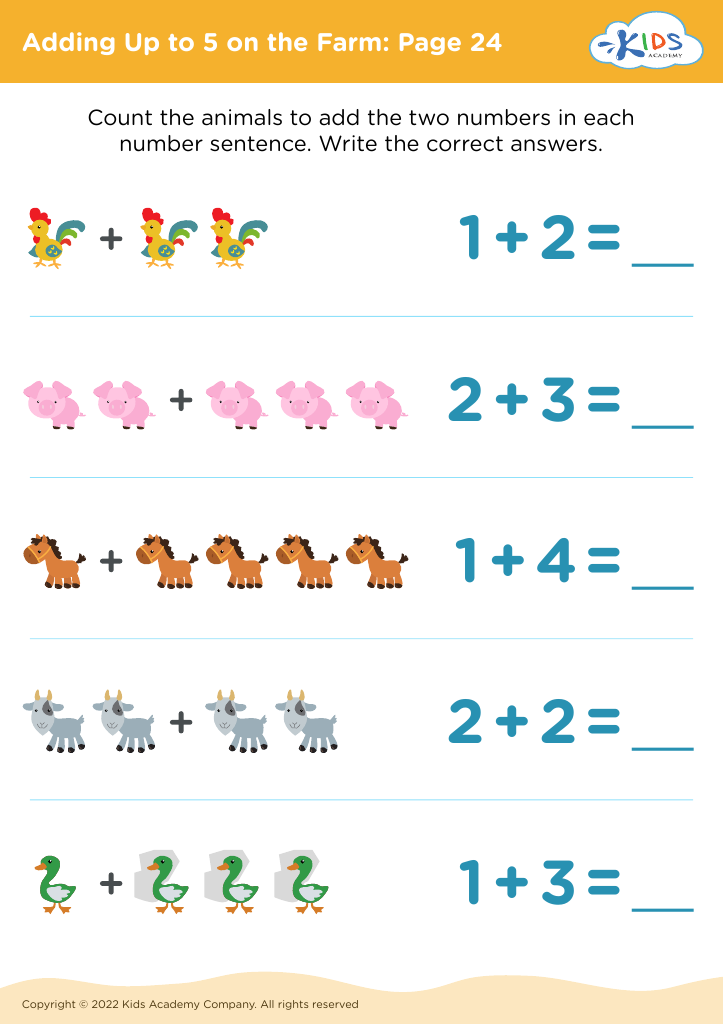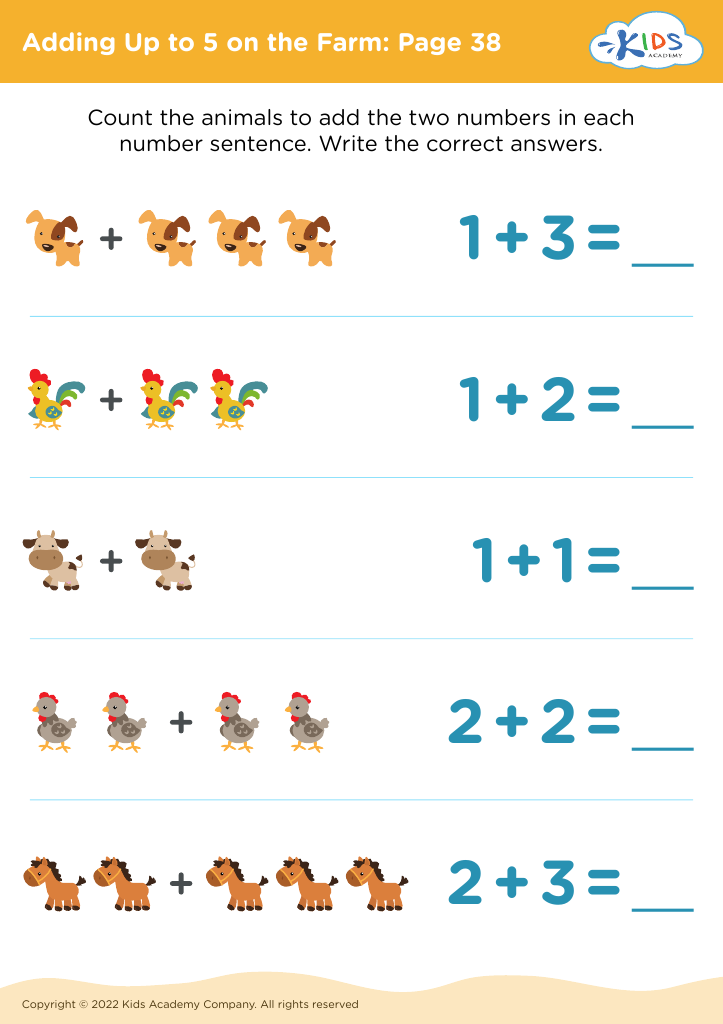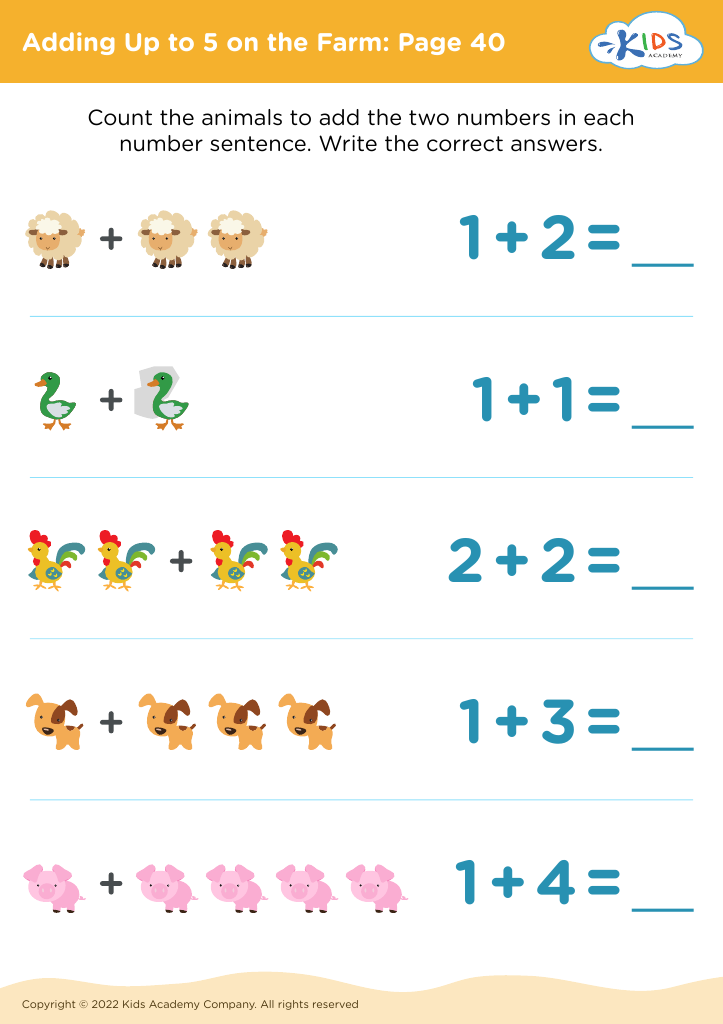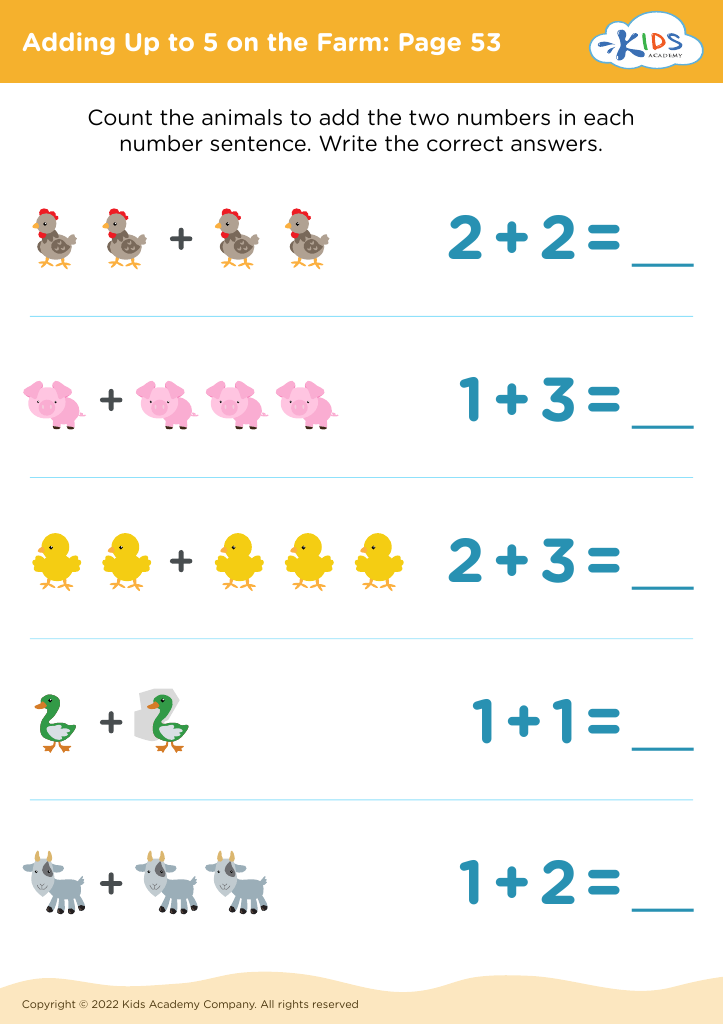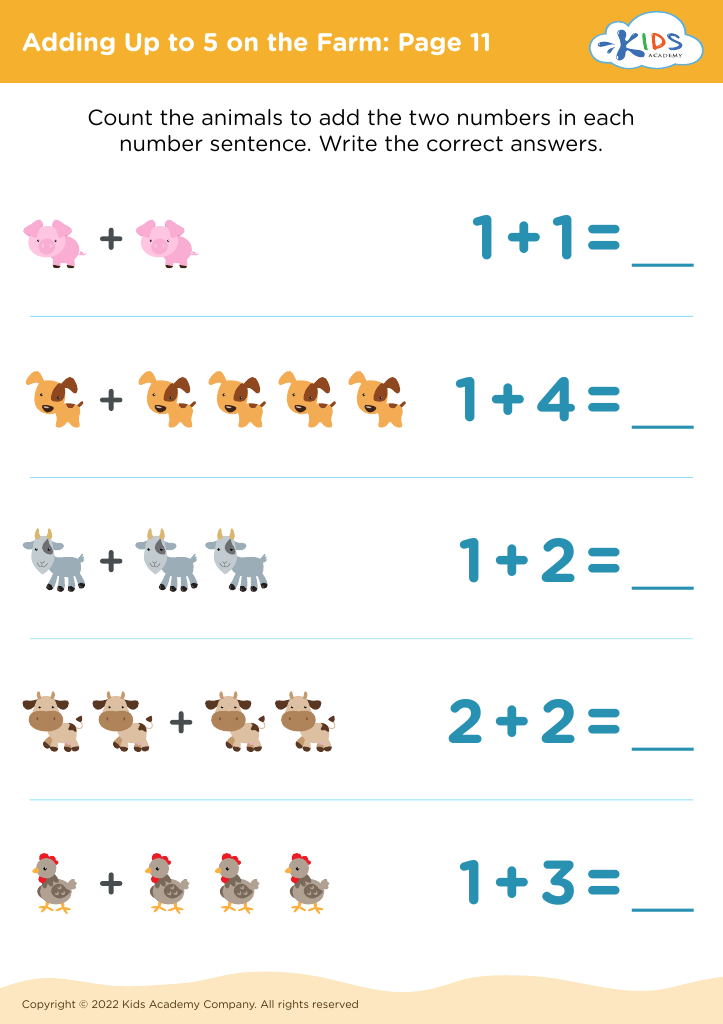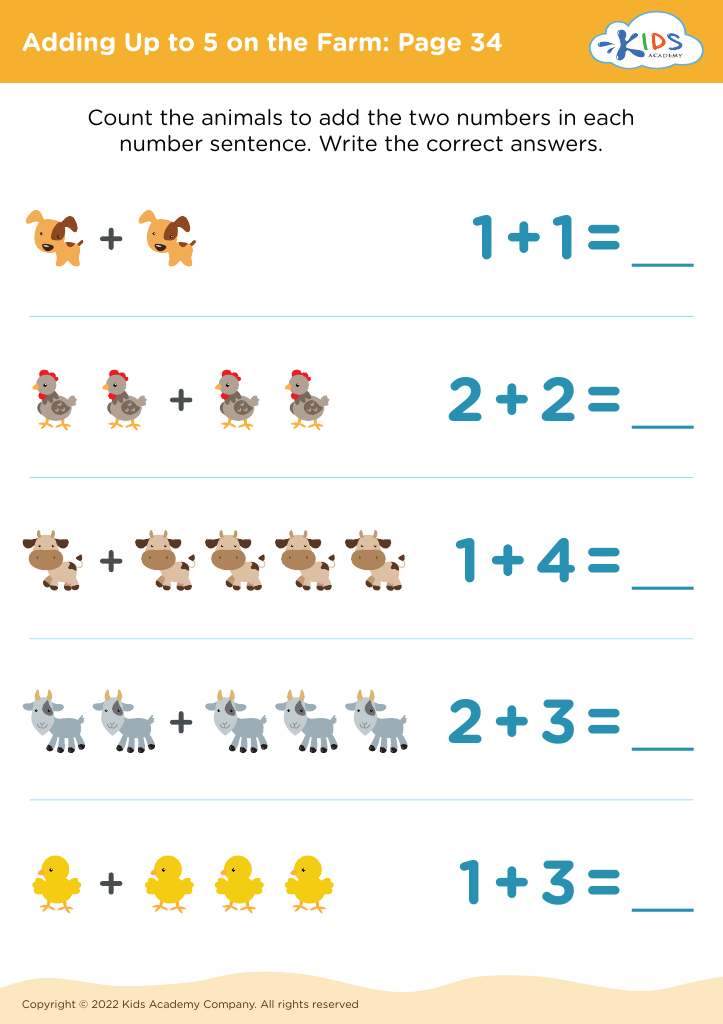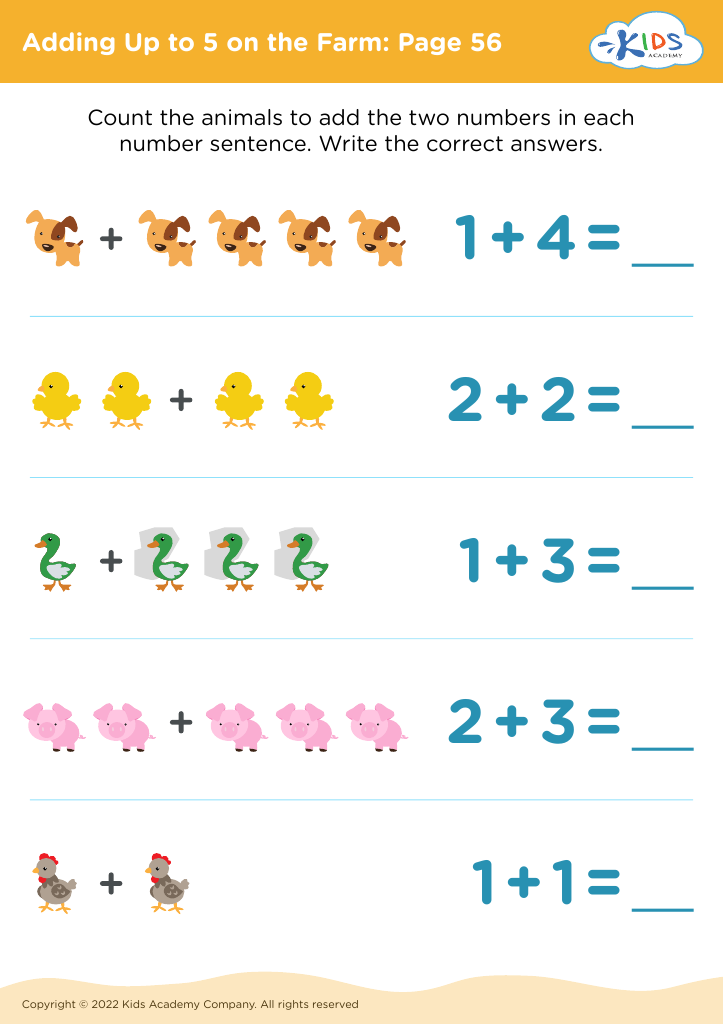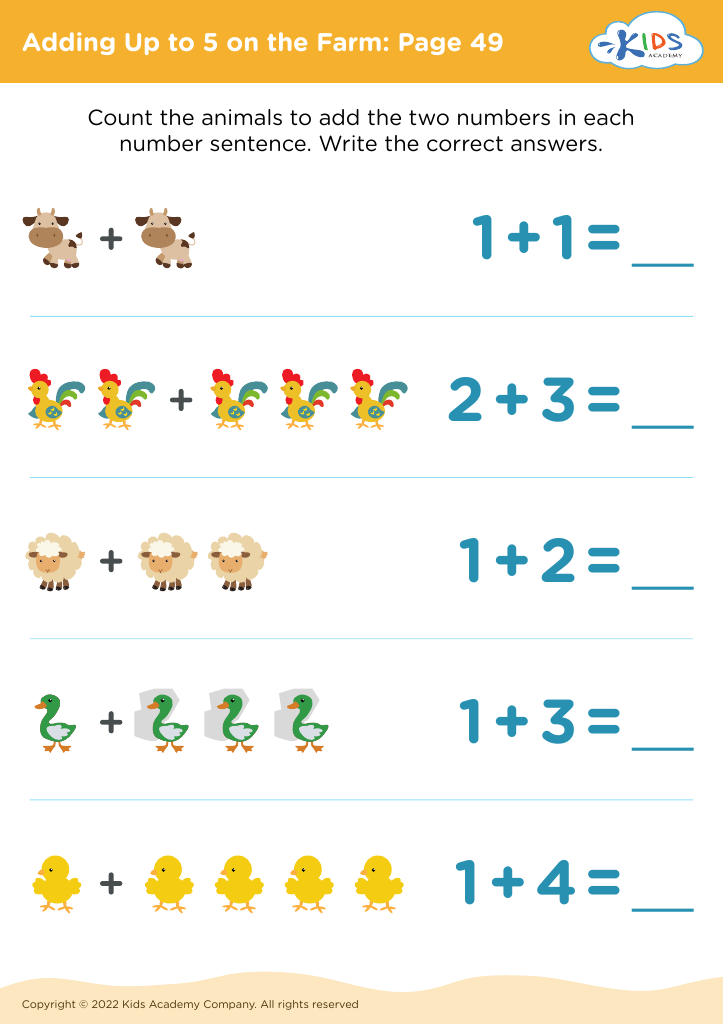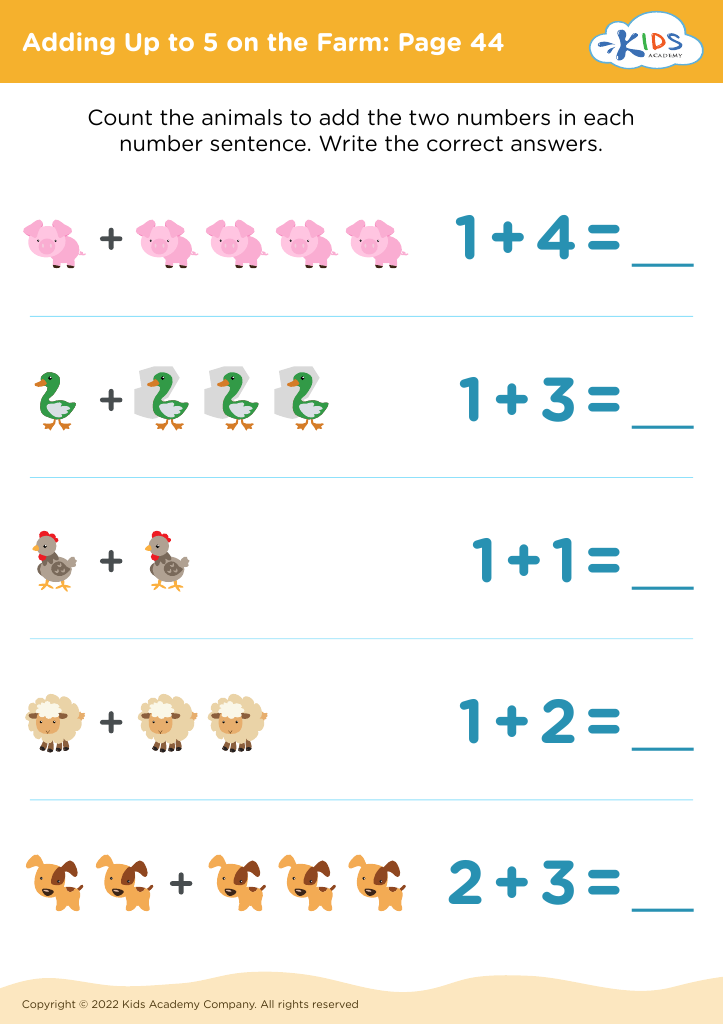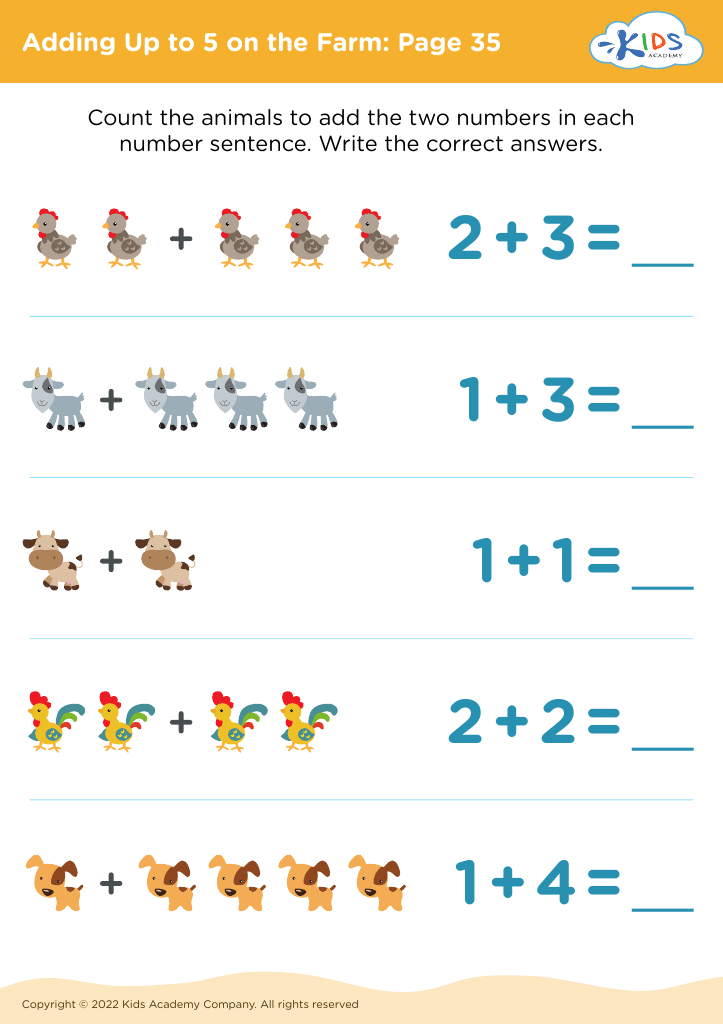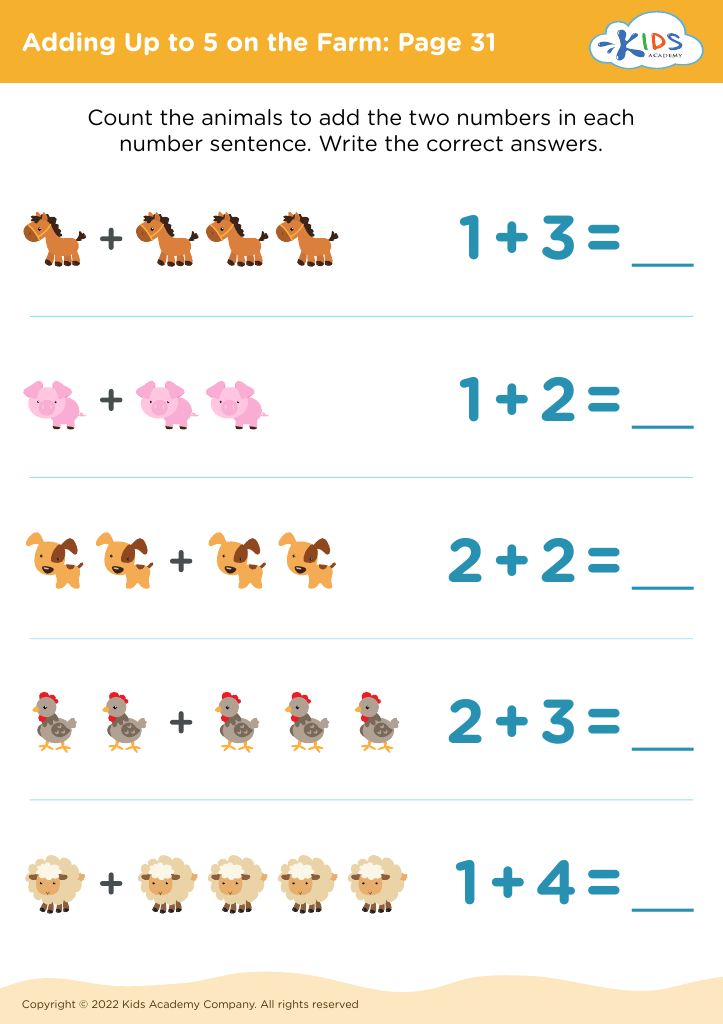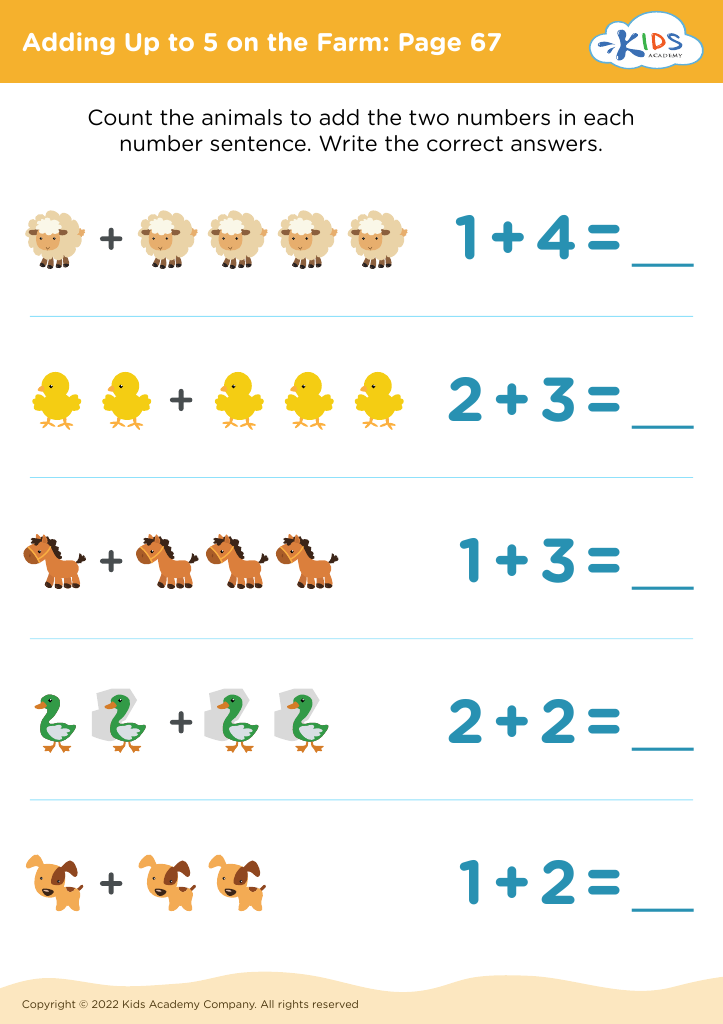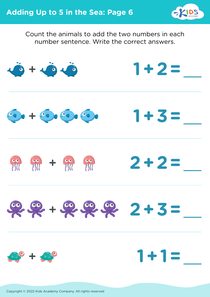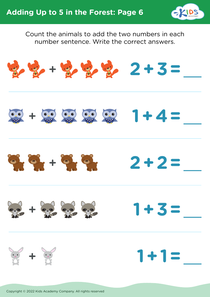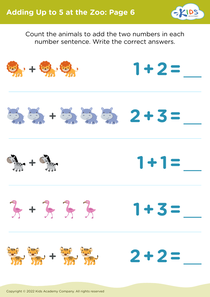Number Recognition Adding on the Farm Worksheets for Ages 3-8
67 filtered results
-
From - To
Discover our engaging "Number Recognition Adding on the Farm" worksheets designed specifically for children aged 3-8. These interactive resources combine fun farm-themed illustrations with essential math skills, helping young learners master number recognition and basic addition. With colorful visuals and kid-friendly activities, students will count animals, add their numbers, and boost their confidence in math. Ideal for parents and educators seeking to enhance early math skills, these worksheets foster a love for learning through playful, hands-on experiences. Download them today and watch as your child cultivates their mathematical abilities while enjoying the lively world of the farm!
Number recognition is a foundational skill essential for early childhood development, particularly for children aged 3-8. Teaching young learners about numbers through engaging themes like "Adding on the Farm" captures their interest in a playful context. This approach not only introduces mathematical concepts but also fosters critical cognitive skills such as counting, addition, and number identification.
Parents and teachers should prioritize number recognition because it lays the groundwork for future mathematical understanding. Recognizing numbers helps children make sense of their world, recognize patterns, and solve problems. When numbers are connected to familiar settings like farms—with animals, crops, and everyday activities—children are more motivated to learn. For instance, counting chickens or adding up apples makes math tangible and relatable.
Moreover, such engaging learning experiences promote early literacy, social skills, and communication. They can facilitate collaborative learning when children work together to solve problems, fostering teamwork. By emphasizing number recognition and themed activities, caregivers can cultivate a positive attitude towards mathematics, reducing anxiety as children progress in their education. This playful, integrated approach to learning not only enhances number skills but also supports the overall development of young learners, preparing them for future academic success.
